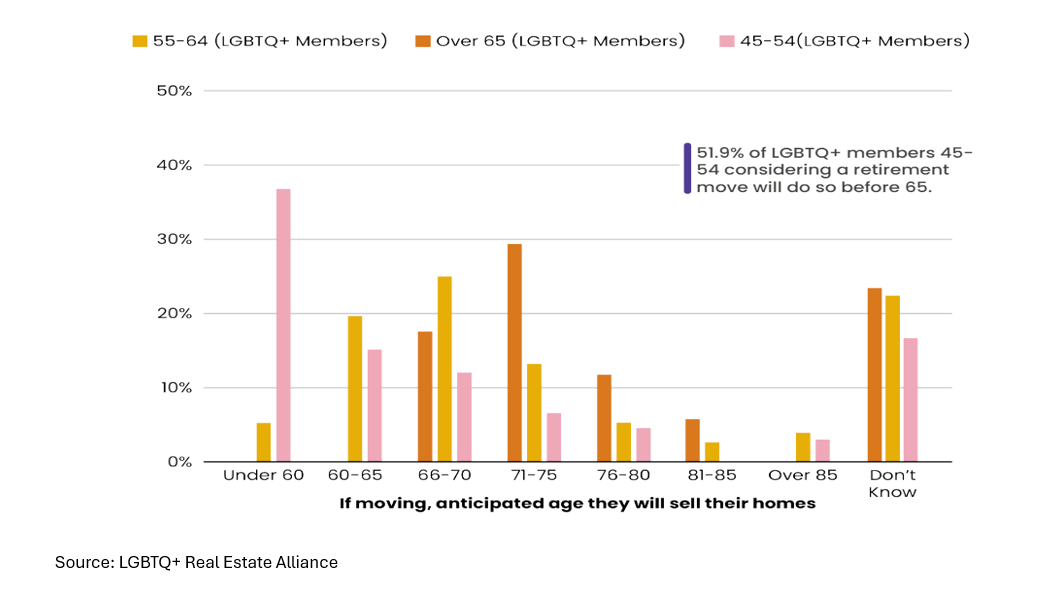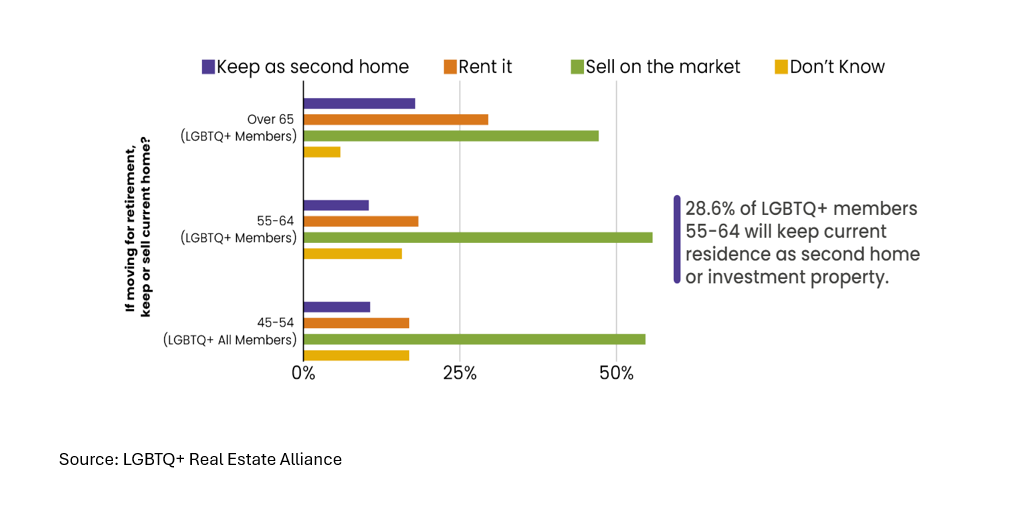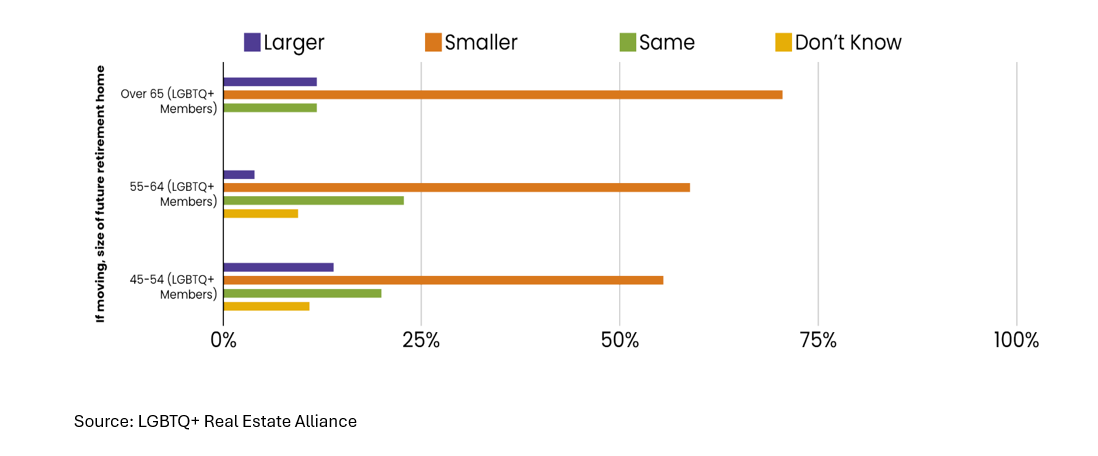Homeownership Trends For LGBTQ+ Baby Boomers
June 13, 2024

The LGBTQ+ community has gained more recognition over the past few years, but there are still noticeable challenges that they are facing within the housing market. The LGBTQ+ Real Estate Alliance released its 4th annual report for 2024 to shed light on the baby boomer housing statistics in the community, highlighting the ongoing struggles and the need for continued support and advocacy.
Despite the discrimination they have faced throughout their lives, LGBTQ+ individuals aged 50-64 are making significant strides in homeownership. According to UCLA’s Williams Institute, 42.9% of this age group now own a home, with 25% having paid off their mortgage. This is a testament to the resilience and determination of the baby boomer generation.
Aging Towards Retirement
Looking ahead, LGBTQ+ homeowners of the Real Estate Alliance are in a favorable position, with a substantial amount of equity. The report reveals that over 60% of baby boomers and older have over $250,000 of home equity. A significant portion of LGBTQ+ members ages 55-64 (roughly 29%) plan to convert their current home into a rental property or second home. Additionally, LGBTQ+ homeowners ages 45-54 express a desire to sell their homes before they turn 65, while older members aim to sell their homes before turning 75.


Choosing where to live for retirement can be quite a task. Many LGBTQ+ members prefer to move to a different state for their retirement, and plenty of LGBTQ+ baby boomers want to move to a whole other country when they retire. One thing common among the LGBTQ+ community is that many of them want to downsize their retirement home within a small urban area or suburb with walkable amenities. Very few members want to live in a rural area or have no desire to live in a 55+ community, according to the report.

The top four reasons why people 60+ don’t intend to move is:
- They’re in love with their home.
- They’re comfortable in the area where they live.
- Their home is almost paid off.
- They have family nearby.
Impact On the Real Estate Market
Baby boomers will be known for transferring the most significant amount of wealth to their descendants and other family members as they eventually pass away. According to the Federal Reserve, baby boomers as a whole have about $78.1 trillion in assets, $18.3 trillion of which is in real estate. The U.S. Census Bureau has reported that baby boomers own 38% of the country’s homes. This could help with the current housing shortage, but baby boomers are holding onto their homes much longer than previous generations. A report from NAR stated that 58% of those 45-54 and 57% of those 65+ who recently purchased a home plan to keep it for at least 11 years.
According to the most recent data from the UCLA Williams Institute, 8% of Virginia’s baby boomers identify themselves as part of the LGBTQ+ community, and 25% of that community are aged 25-34. The housing market pool for the LGBTQ+ community cannot be ignored because they continue to grow and desire to own or sell a home in the future. In a survey conducted by the LGBTQ+ Real Estate Alliance, 75% of LGBTQ+ people ages 45-54 find it challenging to find a place to live for retirement, and 70% of those aged 55-64 feel the same. This is where a REALTOR® professional can come in handy.
You might also like…
See It, Want It, Buy It: Single Female Homeownership
By Dominique Fair - March 11, 2025
Women have fought for a lot over the last 177 years, whether it was for fair wages, the right to vote, or to be able to own a… Read More
Impact of Infrastructure Projects on Residential Markets
By Sejal Naik - February 27, 2025
“Location, location, location” is often quoted in the real estate market and emphasizes the importance of location-based features in people’s housing market decisions. While many locational characteristics stay… Read More
Key Takeaways: January 2025 Virginia Home Sales Report
By Virginia REALTORS® - February 26, 2025
Key Takeaways Virginia’s housing market saw a slight uptick in activity at the beginning of 2025. There were 5,758 home sales across the commonwealth in January 2025, 104… Read More